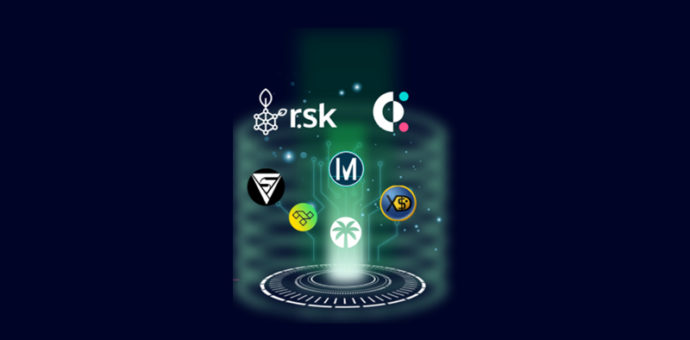RSK has just launched a new hackathon, #OneMillionWallets Crypto Wallet Hackathon, aiming to leverage the creativity and diversity of developers in building applications and interfaces based on its platform. Since September 29, registration has been open to all developers and crypto market enthusiasts. Prizes will start at US$ 20,000, and one of the sponsors is BRZ, Transfero Group’s stablecoin pegged to the real.
The hackathon, organized by Covalent and the RSK blockchain, runs until October 15. The criteria for obtaining the rewards will be disclosed at the beginning of the competition. To get started, it’s worth meeting some basic requirements:
- have the project implemented in RSK Testnet or RSK Mainnet;
- use Covalent API;
- complete at least one reward criterion (according to ads that will still be released).
The selected projects will be invited to the presentation during ‘Demo Day’, which will have a panel of judges with representatives of Covalent, RSK, and sponsors.
Proof of Education: hackathon aims to stimulate innovation
The #OneMillionWallets competition is an ‘Education Test’ campaign to encourage creativity and diversity in decentralized wallet applications. Thus, the idea is that anyone can build their cryptoasset wallet, customized with the Covalent API.
To participate, you must meet some requirements:
- sign up for hackathon #OneMillionWallets;
- join Discord;
- watch the #OneMillionWallets (RSK Kick-Off Webinar);
- use the covalent API from the Docs API and code templates (RSK Wallets);
- watch the tutorials.
Awards
Together, Covalent + RSK offers up to US$ 10,000 as a prize for the hackathon. In addition, other sponsors also guarantee prizes to competitors. In the case of Transfero Group, it will be US$ 2,000 in BRZ tokens, to be divided between the two main projects that follow the following specifications:
- multichain view (including RSK) of the BRZ balance of a wallet;
- a panel displaying volumes, streams, and details of the ‘CrossRequested’ registration event issued by the BRZ Token Bridge
Resources can be added to their own or standalone projects.
Selection criteria
To have the project approved, you must follow some criteria.
- Uniqueness: does the wallet app do something new or at least take a new approach to an old problem?
- Execution: is the user experience with the app a friendly one? Does everything seem to work? Is it well designed?
- Utility: is the wallet practical? That is, is it something people would use, meeting a real need?
- Learning: has the individual (or the team enrolled) demonstrated effort, pushing the limits of learning?
Categories
There are three categories as listed below.
- New BUIDLs – projects started and sent from scratch during the hackathon period.
- Technical improvements – projects of other hackathons that have been updated to include RSK and other updates.
- SQL – the novelty in this hackathon is the SQL track, where a copy of Covalent’s database will be available for access during the hackathon, for some participants. This track will be accompanied by Brandon Rochon, a senior research analyst at Covalent







